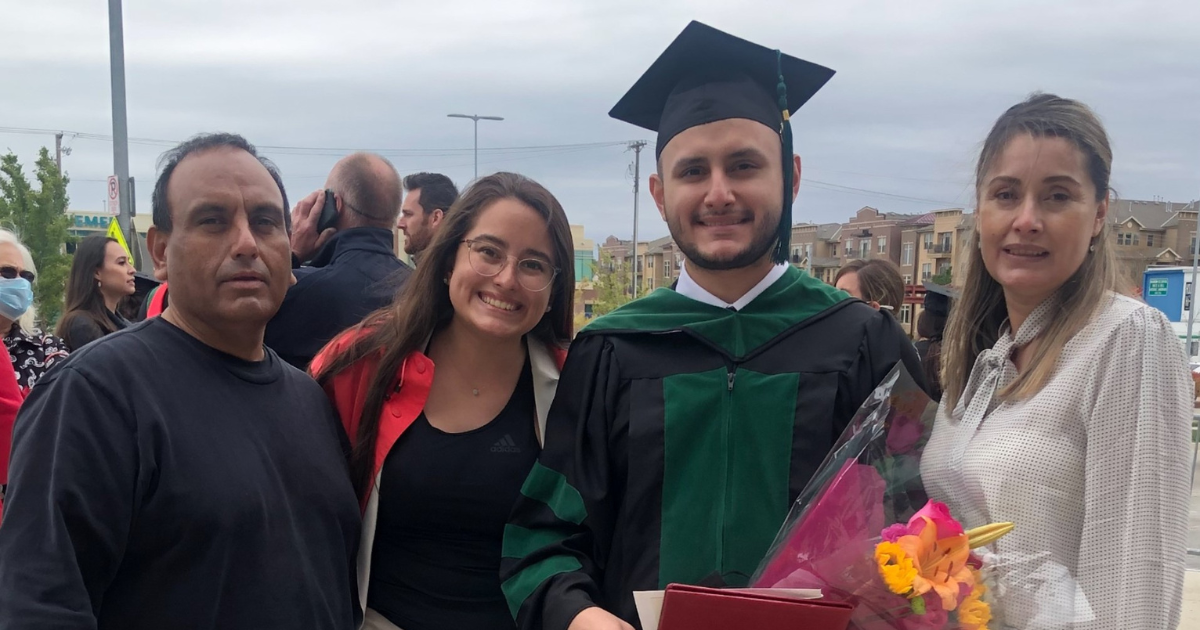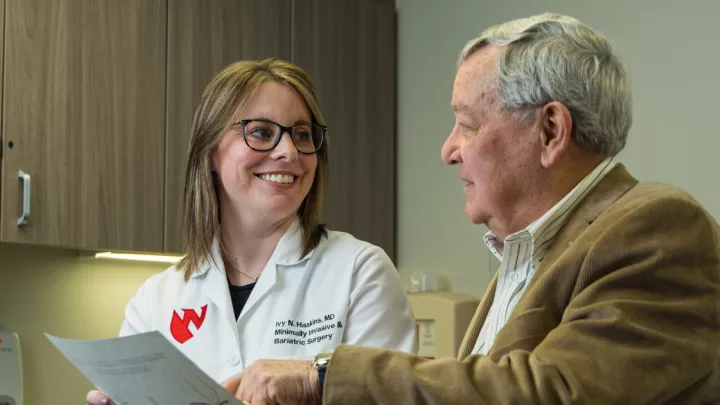Patient finds joy in eating again thanks to the POEM procedure

When Carlos Valquer-Cruz found himself with a swallowing condition that continued to worsen over several years, he decided it was finally time to see a doctor. He doesn’t remember when it started, but over time found it increasingly difficult to swallow. Soon, eating, drinking and even sleeping became difficult.
“Every time I would eat, I would choke. It felt like my esophagus wasn’t allowing food or even water to go down easily,” says Valquer-Cruz. “Even at night, it kept me up because everything would start coming back up – even though I’ve never struggled with heartburn or acid reflux. I didn’t think much of it at first because my symptoms came on so gradually. That is until I realized it wasn’t getting better, and I was losing weight.”
Valquer-Cruz discovered he had a condition called achalasia. In the area where the esophagus and stomach meet, the lower esophageal sphincter muscle relaxes to allow food to pass into the stomach. In people with achalasia, the muscle doesn’t relax as it should and can cause symptoms such as difficulty swallowing, regurgitation, vomiting, chest pain and weight loss.
“Testing for achalasia involves an esophagram, endoscopy and pressure testing called manometry,” explains Ishfaq Bhat, MD, Nebraska Medicine gastroenterologist. Once achalasia was diagnosed, Valquer-Cruz tried medication, but it didn’t help. Esophageal dilation (stretching the esophagus) was then performed and did help at first, but his symptoms returned after a few weeks.
It was then that a specialized team, comprising of Dr. Bhat, Shailender Singh, MD, and Alexander Hewlett, DO, reviewed and discussed the peroral endoscopic myotomy (POEM) option with Valquer-Cruz. “POEM is a minimally invasive endoscopic procedure for achalasia and some other disorders of the esophagus, which is less risky,” says Dr. Bhat. “The patient goes home the next day, and treatment works as well as surgery based on several years of data. After a proper workup and discussion with Valquer-Cruz about his options, rationale, risks and benefits, he chose the POEM procedure.”
During the POEM procedure, an endoscope is passed through the mouth and into the esophagus while the doctor observes the images on a monitor. An incision is made to access the esophageal sphincter muscle, which will be partially removed, ultimately aiding in the relaxation of the muscle to aid in swallowing. The team has performed 25 of these specialized surgeries with excellent results.
“The doctor and his team did an excellent job, and I would highly recommend them,” Valquer-Cruz says. “They explained everything to me ahead of time and made me feel comfortable. As soon as I woke up, I felt like normal – it was such a relief and felt so good to swallow correctly again without any problems!”
It’s been a few years now, and Valquer-Cruz reports he is still doing well with zero symptoms. Looking back, he wishes he had gone to a doctor sooner. “I was scared to see a doctor because I thought I might have something worse like a tumor, but then I had no choice,” he adds. “I started to lose weight, and even though I was afraid, I decided that if there was a fix for this problem, I needed it.”
If you or someone you love struggles with a similar issue, Valquer-Cruz encourages them to seek help sooner rather than later. “If you’re going through what I went through, get it done. You’ll feel completely different. I thought I had to live the rest of my life this way, but I was so glad after I did it. Getting help changed my life.”






